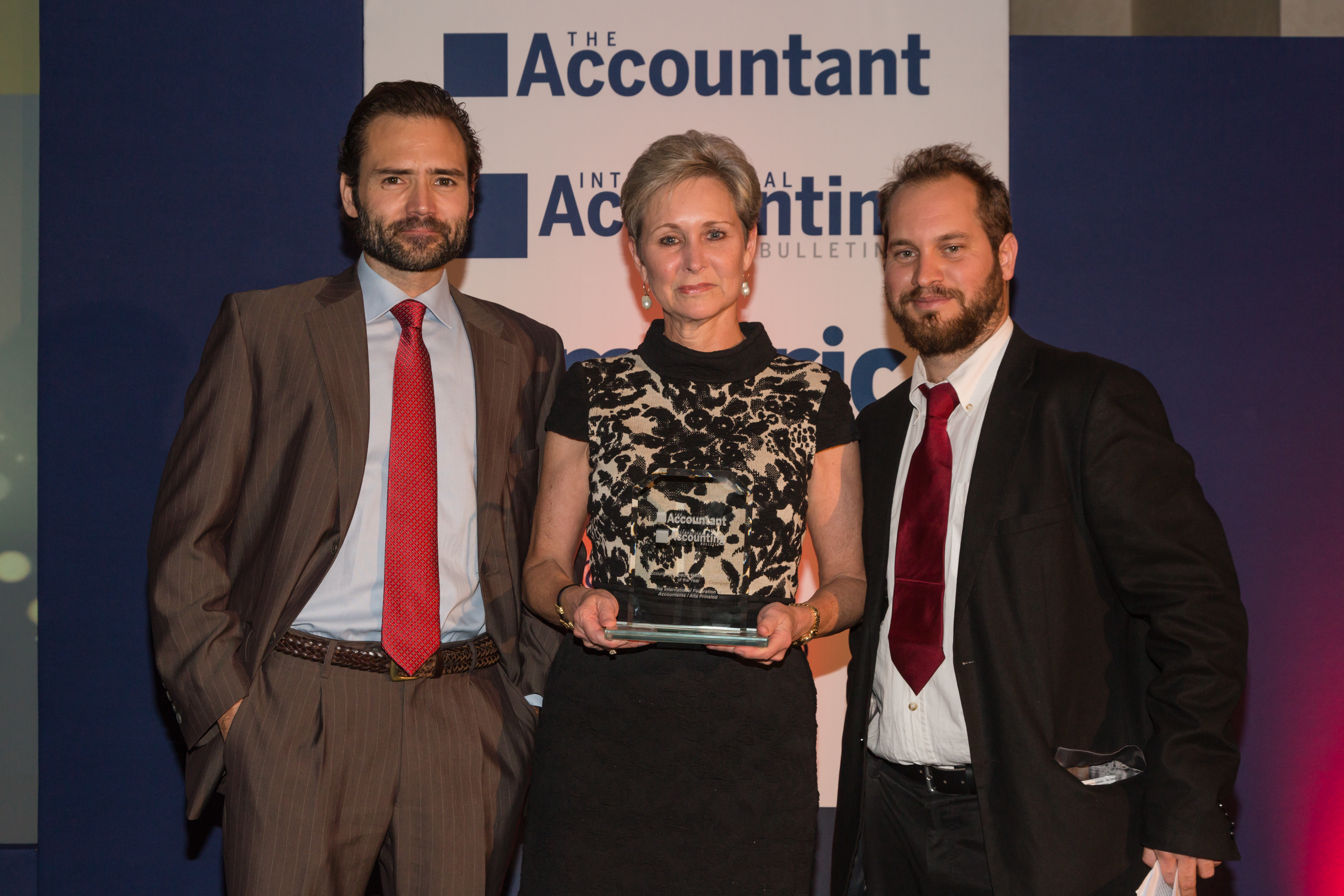IAASB Outreach Activities, January - November 2016
The IAASB has continued its extensive outreach program contemplated in its five-year Strategy for 2015-2019: Fulfilling Our Public Mandate in an Evolving World. The following is a detailed listing of events IAASB representatives participated in or presented at for January-November 2016.
IAASB Presentation and Outreach Activities from January 2016–November 2016
IAASB representatives participated in, or presented, at the following events:
January 2016
- Meeting with KPMG Global Assurance Leadership – London, United Kingdom (Schilder)
- Meeting with representatives of the International Accounting Standards Board – London, United Kingdom (Pickeur, Sharko, Shannon, James, van den Hout)
February 2016
- Teleconference with International Organization of Securities Commissions Committee 1, Auditing Subcommittee (Sharko, Healy, James, van den Hout)
- Participation in the Association of Chartered Certified Accountants Audit and Assurance Global Forum – by teleconference (Murtagh)
- Participation in the International Federation Of Accountants' panel at the American Accounting Association International Accounting Section 2016 Mid-Year meeting – New Orleans, United States (Bahlmann)
- Presentation at the International Forum of Independent Audit Regulators' Inspection Workshop Working Group meeting – Abu Dhabi, United Arab Emirates (Schilder, Bahlmann)
- Participation in INTOSAI’s Financial Audit Subcommittee meeting – Abu Dhabi, United Arab Emirates (Bahlmann)
- Meeting with representatives of Institut der Wirtschaftsprüfer – Düsseldorf, Germany (Schilder, Murtagh, Thomadakis, Fleck, Gunn (by teleconference), Healy)
- Participation in the International Association of Insurance Supervisors Accounting and Auditing Working Group meeting – Basel, Switzerland (Köhler, Sharko (by teleconference), van den Hout (by teleconference))
March 2016
- Participating in the United Nations Conference on Trade and Development's Consultative Group on Sustainable Development Goals – Geneva, Switzerland (Kamp-Roelands)
- Roundtable on Enhancing Audit Quality at Nederlandse Beroepsorganisatie voor Accountants – Amsterdam, Netherlands (Schilder, Köhler, Sharko, Zietsman, Bahlmann)
- IAASB Consultative Advisory Group Meeting – Paris, France (Schilder, Landes, Campbell, Dohrer, Kelsall, Köhler, Murtagh, Salole, Sharko, Waldron, Gunn, Healy, Bahlmann, Kamp-Roelands, van den Hout)
- Meeting with representatives of Compagnie Nationale des Commissaires aux Comptes and Conseil Supérieur de l'Ordre des Experts-Comptables – Paris, France (Schilder, Landes, Gunn, Healy)
- IAASB Roundtable on Enhancing Audit Quality– Paris, France (Schilder, Landes, French, Köhler, Sharko, Zietsman, Gunn, Healy, Bahlmann, Kamp-Roelands)
- Public Interest Oversight Board Meeting – Madrid, Spain (Schilder, Sharko, Zietsman, Gunn, Healy)
- Presentation at International Federation of Accountants Small and Medium Practices Committee meeting – New York, United States of America (Murtagh)
- Presentation at Business Week at the University of North Carolina-Wilmington – Wilmington, USA (Dohrer)
April 2016
- Meeting with International Integrated Reporting Council – London, United Kingdom (Schilder, Landes, Grabowski, Kelsall (by teleconference), Healy, Kamp-Roelands (by teleconference))
- Meeting with Chartered Institute of Management Accountants – London, United Kingdom (Schilder, Landes, Healy)
- Attendance at the United Kingdom Financial Reporting Council’s Event on Enhancing Audit Quality – London, United Kingdom (Schilder, Landes, Grabowski, Jackson, Healy)
- Meeting with Association of Chartered Certified Accountants – London, United Kingdom (Schilder, Landes, Healy)
- Meeting with Institute of Chartered Accountants in England and Wales – London, United Kingdom (Schilder, Landes, Healy)
- Presentation at Crowe Horwath International’s Regional Meeting – Bali, Indonesia (Chiew)
- Meeting with Representatives from the Dubai Financial Services Authority – Dubai, United Arab Emirates (Sharko, James)
- Presentation at Unione Giovani Dottori Commercialisti ed Esperti Contabili Convention – Padova, Italy (Vanbeveren)
- Joint Association of Chartered Certified Accountants / Malaysian Institute of Accountants / IAASB Roundtables on Enhancing Audit Quality – Kuala Lumpur, Malaysia (Schilder, Kelsall, Murtagh, Zietsman, Chiew)
- Participation in Panel at the International Forum of Independent Audit Regulators' Plenary Meeting – London, United Kingdom (Schilder)
- Participation in the Public Accountants and Auditors Board's Roundtable on New Auditor's Report – Harare, Zimbabwe (Bahlmann)
- Presentation at Zimbabwe Accountants Conference 2016 – Harare, Zimbabwe (Bahlmann)
- Presentation at Pan African Federation of Accounting Technical Meeting – Livingstone, Zambia (Bahlmann)
- Meeting with US Securities and Exchange Commission – Washington D.C., United States of America (Schilder, Landes, Zietsman, Healy)
- Meeting with United States Public Company Accounting Oversight Board Members and Staff – Washington D.C., United States of America (Schilder, Landes, Zietsman, Healy)
- Presentation to the Governing Board of the Center for Audit Quality – Chicago, United States of America (Schilder, Healy)
- Meeting with Chairman of United States Auditing Standards Board – Chicago, United States of America (Schilder, French, Healy)
- Meeting with Grant Thornton Leadership – Chicago, United States of America (Schilder, French, Healy)
May 2016
- Presentation at Crowe Horwath International’s Regional Meeting – Miami, United States of America (Jones)
- Meeting with Representatives of the International Association for Accounting Education & Research and Institute of Chartered Accountants of Scotland – Amsterdam, Netherlands (Köhler, Kamp-Roelands)
- Attendance at the Foundation for Audit Research Conference – Breukelen, Netherlands (Schilder)
- Presentation at the Forum of Firms – Paris, France (Schilder, Zietsman, Montgomery, Bahlmann, Klonaridis)
- Participation in the International Association of Insurance Supervisors Accounting and Auditing Working Group Meeting – Teleconference (Dohrer, Pickeur, James, Williams)
- Meeting with the Basel Committee on Banking Supervision's Accounting Experts Group – Madrid, Spain (Sharko, van den Hout)
- Participation in Forum of Firms Group Audits Symposium – Paris, France (Zietsman, Burzenski, Bahlmann)
- Presentation to the Annual Congress of the European Accounting Association – Maastricht, Netherlands (Schilder)
- Meeting with Representatives of the Global Public Policy Committee on Auditor Reporting Implementation – Paris, France (Montgomery, Sylph, Shannon, Weber, Klonaridis,)
- Meeting with International Accounting Standards Board Leadership – London, United Kingdom (Schilder, Blascos, Grabowski, Sharko)
- Participation at the Fédération des Experts-Comptables Européens, Consultative Committee of Accountancy Bodies and Chartered Financial Analyst Institute's Joint Event on the Future of Corporate Reporting – London, United Kingdom (Grabowski)
- Panelist at Global Reporting Initiative's Corporate Leadership Group Meeting – Amsterdam, Netherlands (Kamp-Roelands)
- Participation in the United States Public Accounting Oversight Board's Standing Advisory Group Meeting – Washington D.C., United States of America (Schilder, Zietsman, Healy)
- Presentation at 2016 Deloitte Foundation / University of Kansas Auditing Symposium – Kansas City, United States of America (Bahlmann)
- Meeting with the International Forum of Independent Audit Regulators' Standards Coordination Working Group – Amsterdam, Netherlands (Schilder, Köhler, Sharko, Zietsman, Gunn, Healy, Williams)
- Participation in International Organization of Supreme Audit Institutions Professional Standards Committee's Steering Committee Meeting – Copenhagen, Denmark (Gunn)
- Participation in the Institute of International Finance's Three-way Dialogue Meeting – London, United Kingdom (Sharko, van den Hout)
June 2016
- 11th Turkish Accountancy Forum – Ankara, Turkey (Sylph)
- Meeting with Auditing Sub-Committee of the International Organization of Securities Commissions – London, United Kingdom (Grabowski, Campbell (by teleconference), Healy, Williams, Klonaridis and Kirpalani (by teleconference))
- Meeting with Committee 1 of the International Organization of Securities Commissions – London, United Kingdom (Schilder, Gunn, Healy)
- Meeting with Representatives from the Confederation of Netherlands Industry and Employers (VNO-NCW) – The Hague, Netherlands (Sharko)
- Presentation at American Institute of Certified Public Accountants Practitioners Symposium and Tech Conference – Las Vegas, United States of America (French, Bahlmann)
- Presentation to the American Institute of Certified Public Accountants’ Assurance Services Executive Committee Meeting – New York, United States of America (Kamp-Roelands)
- Presentation at Small and Medium Practices Committee Meeting – Las Vegas, United States of America (French, Bahlmann)
- International Federation of Accountants Board Meeting – New York, United States of America (Schilder, Gunn)
- Presentation at Instituto dos Auditores Independentes do Brasil 6th Brazilian Conference on Accounting and Independent Auditing – Sao Paulo, Brazil (Gunn)
- National Auditing Standards Setters Meeting – New York, United States of America (Schilder, Landes, Campbell, Dohrer, Healy, Kamp-Roelands, Bahlmann, Williams, Kirpalani, Klonaridis, Simms)
- Panelist at the International Symposium on Audit Research Conference – Singapore, Singapore (Montgomery)
- Panelist at the Association of Chartered Certified Accountants' ASEAN Conference – Singapore, Singapore (Montgomery)
- Presentation to ASEAN Federation of Accountants' Council Meeting – Singapore, Singapore (Montgomery)
- Presentation to the Integrated Reporting Network for Professional Accountancy Organizations – Webinar (Kamp-Roelands)
- Joint session with IAASB and Center for Audit Quality at the International Corporate Governance Network Conference – San Francisco, United States of America (Köhler, Zietsman)
- Participation in Global Auditor Investor Dialogue Auditor Reporting Session at the International Corporate Governance Network Conference – San Francisco, United States of America (Montgomery, Healy)
- Public Interest Oversight Board Meeting – Madrid, Spain (Schilder, Waldron, Gunn)
July 2016
- Meeting with Representatives of the International Accounting Standards Board on International Financial Reporting Standard 4, Insurance Contracts (by teleconference), (Sharko, Pickeur, Shannon, James, Van den Hout)
- Meeting with representatives of Compagnie Nationale des Commissaires aux Comptes– Paris, France (Pickeur)
- Meeting with Representatives of the Fédération des Experts-Comptables Européens – Brussel, Belgium (Schilder, Gunn)
- Meeting with Representative of the European Commission – Brussel, Belgium (Schilder, Gunn)
August 2016
- Participation at the Nordic Federation of Public Accountants' Annual Assembly – Naantali, Finland (Schilder)
- Discussion Leader and Presentation at the Instituto Nacional de Contadores Públicos de Colombia Summit – Cartagena, Colombia (Schilder)
- Panel Participant at the Instituto Nacional de Contadores Públicos de Colombia Summit – Cartagena, Colombia (Zietsman)
- Meeting with Representatives of the Columbian Ministry of Commerce, Industry and Tourism, Technical Council of Accountancy, Company Superintendence, Accounting Firms, Central Board of Accountants and Instituto Nacional de Contadores Públicos de Colombia – Cartagena, Colombia (Schilder, Zietsman)
- Meeting with the Basel Committee on Banking Supervision's Accounting Experts Group - Basel, Switzerland (Pickeur, Sharko (by teleconference), van den Hout)
September 2016
- Presentation at the Centre for Financial Reform of the World Bank – Vienna, Austria (Pickeur)
- Participation in the International Association of Insurance Supervisors Accounting and Auditing Working Group Meeting (by teleconference) (Sharko, Campbell, James, Williams, Kirpalani)
- International Federation of Accountants Board Meeting – Sydney, Australia (Gunn)
- International Auditing and Assurance Standard Board Consultative Advisory Group Meeting – New York, United States of America (Schilder, Landes, Campbell, French, Köhler, Sharko, Zietsman, Waldron, Gunn, Healy, Bahlmann, van den Hout)
- World Bank Centre for Financial Reporting Reform―Audit Training of Trainers Virtual Workshop: New and Revised Auditor Reporting Standards – (Montgomery)
- Public Interest Oversight Board Meeting – New York, United States of America (Schilder, Waldron, Zietsman, Gunn)
- Meeting with Members of the Monitoring Group – New York, United States of America (Schilder, Gunn)
- Participation in Participation in Roundtables on Auditor Reporting organized by the Malaysian Institute of Certified Public Accountants ‒ Kuala Lumpur, Malaysia (Montgomery)
- Meeting with Representatives from Hong Kong Exchanges and Clearing Limited, Securities and Futures Commission, Financial Reporting Council and Hong Kong Institute of Certified Public Accountants ‒ Hong Kong, China (Schilder, Landes, Zietsman, Campbell, Kelsall, Murtagh, Bahlmann)
- Meeting with International Organization of Securities Commissions' Chair ‒ Hong Kong, China (Schilder, Landes, Gunn)
- Presentation at Certified Public Accountants Australia ‒ Hong Kong, China (Schilder, Zietsman, Kelsall)
- Presentation to International Federation of Accountants' Professional Accountants in Business Committee ‒ Dubai, United Arab Emirates (Köhler)
- Presentation Fédération des Experts Comptables Européens ‒ Brussel, Belgium (Pickeur, Sharko (by teleconference))
October 2016
- Panelist at the International Standards of Accounting and Reporting's Workshop on Accounting and Financial Reporting Standards ‒ Geneva, Switzerland (Grabowski)
- Presentation and Panelist at Annual Meeting of the Swiss Association of Certified Public Accountants ‒ Bern, Switzerland (Köhler)
- Presentation at International Federation of Accountants Small-and-Medium Practices Committee meeting ‒ New York, United States of America (Murtagh, Sharko, Zietsman)
- Presentation at Nijenrode University ‒ Breukelen, Netherlands (Schilder)
- World Bank Centre for Financial Reporting Reform―Audit Training of Trainers Workshop: The IAASB’s Data Analytics Project ‒ Virtual workshop (Young)
- Meeting with the Forum of Firms/ Transnational Auditors Committee ‒ New York, United States of America (Zietsman, Campbell, Bahlmann, Williams)
- Presentation at Russell Bedford International Annual Conference ‒ Mexico City, Mexico (Sylph)
- Meeting with Representative from the Monitoring Group ‒ Toronto, Canada (Schilder (by teleconference), Gunn)
November 2016
- Presentation at the Accounting Academy's 3rd Annual Practice Management Conference for Accountants ‒ Johannesburg, South Africa (Vanker)
- Presentation at PKF's International Assurance and Accounting Conference ‒ Warsaw, Poland (Dohrer)
- Meeting with European Audit Inspection Group ‒ Limasol, Cyprus (Zietsman, Gunn)
- Panel Participants at the Central Bank of Russian Federation's International Audit Conference ‒ Moscow, Russia (Zietsman, Sharko)
- IAASB Update Presentation (to Russian Government Officials, Practitioners and Academics) ‒ Moscow, Russia (Zietsman, Sharko)
- Panelist at Association of Chartered Certified Accountants / Grant Thornton Event :The Future of Audit ‒ Brussels, Belgium (Schilder)
- Teleconference with Global Auditor Investor Dialogue (Schilder, Zietsman)
- Auditor Reporting Presentation to Russell Bedford International ‒ Jakarta, Indonesia (Sylph)
- Auditor Reporting Presentation to Russell Bedford International ‒ Perth, Australia (Sylph)
- Auditor Reporting Presentation to Russell Bedford International ‒ Melbourne, Australia (Sylph)
- Presentation/moderator/panelist/attendance at Auditor Roundtable at CPA Australia ‒ Melbourne, Australia (Sylph, Campbell, Kelsall)
- Presentation/moderator/panelist/attendance at Auditor Roundtable at Chartered Accountants Australia and New Zealand ‒ Sydney, Australia (Sylph, Campbell, Kelsall)
- Presentation/participation in Auditor Roundtable at the New Zealand External Reporting Board ‒ Auckland, New Zealand (Sylph, Campbell)
- Presentation/participation in Auditor Roundtable at the New Zealand External Reporting Board ‒ Wellington, New Zealand (Sylph, Campbell)
- Attendance at the United States Public Company Accounting Oversight's Board's Standing Advisory Group ‒ Washington D.C., United States of America (Zietsman)





